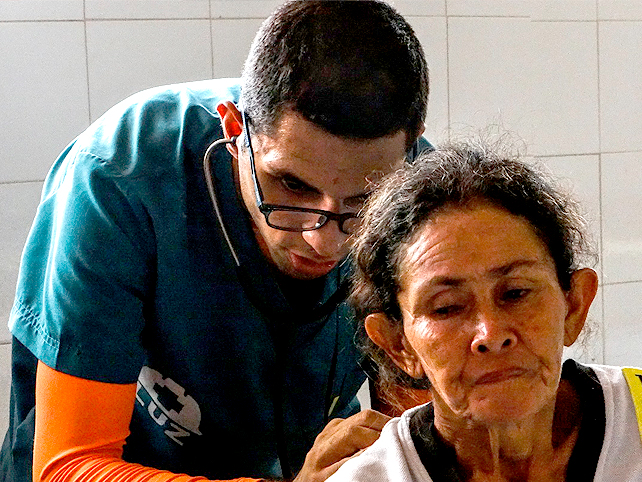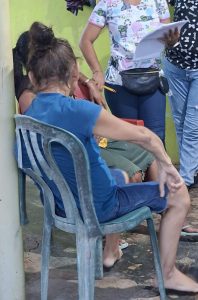The LA PEP program’s main objective is to provide educational opportunities to health professionals that work in Latin American enclaves with a high incidence of Huntington’s disease.
Health & Disease Management is one of the main areas of focus of Factor-H and one of the main programs is what we call LA PEP (The Latin American Profesional Exchange Program), whose main objective is to provide educational opportunities to health professionals in Latin American enclaves with a hight incidence of Huntington’s disease. Factor-H selects and recommends health professionals to apply for fellowships, either funded by Factor-H itself, or through HD organizations such as the European HD Network (EHDN). All applicants must be selected by factor-H to be considered for funding.
The Program has two main dimensions. In one of them, we send Latin American professionals to be trained to HD centers of excellence in Barcelona (Spain), Medellin (Colombia) and Santiago (Chile), in the other one, we send a multidisciplinary team from HD centers of excellence, to HD clusters where they conduct field medical visits and training courses for impoverished communities.
1-3 months
The first strategic goal is to send health professionals from these regions to centers of excellence in Spain or Latin America to get trained, in brief stays of 1-3 months in duration. Defining a collaborative agreement between HD-expert clinical units in Barcelona (Spain), Santiago (Chile) and in Medellin (Colombia) and local Latin-American professionals (such as the hospital and University of Zulia State, Venezuela) with proximity to the communities most affected by HD will undoubtedly have a significant positive impact on these communities. In this dossier, you will find letters of support from the various host institutions.
The trained professionals will then return to their communities or host institutions to provide access to adequate care and to improve the education of their peers and also the families impacted by the disease.
– Sending Latin American professionals to be trained to HD centers of excellence in Barcelona (Spain), Medellin (Colombia) and Santiago (Chile). Sending a multidisciplinary team from HD centers of excellence to HD clusters, to conduct field medical visits and training courses for impoverished communities.
A broader cooperation
A second aspect of the program involves sending a professional HD team from our allied European and Latin American colleagues working in HD centers of excellence to those communities to conduct training courses for health professionals and caregivers. We believe this second ‘arm’ of the program will ensure a wider reach to many caregivers and local health professionals. This will also ensure a broader cooperation between HD-specialists and residents, students and non-physicians. Through lectures and workshops, we think this approach will attract a wider support by the local institutions and ensure continuity. In addition, the ability for the visiting teams to conduct visits to the most impoverished communities will lead to better tailoring of best practices given the constraints experienced in conditions of extreme poverty. Given the fact that hundreds of affected individuals are located in small geographic areas, a tailored program well-crafted for their specific needs should have an enormous impact on the population at hand.
Participants
The LAPEP program is aimed at personnel involved in the medical (fellows, neurologists, psychiatrists, nurses), psychological (clinical psychologists and neuropsychologists) and other health-related activities (speech therapists, physical therapists, occupational therapists) who participate in the care and management of HD families.
The exchange program will allow selected applicants to conduct an internship rotation at one of the collaborating sites for either a 1-month or a 3-month period.
Moreover, we are also fully disposed to define an interventional program in Latin-America which will have a yearly periodicity (two to four weeks per year) and will involve professionals from the HD centers of excellence who in coordination with Factor-H will perform assistance and formative activities in universities and rural areas where a large number of HD communities.
One of the main aims of this interventional program will be to provide the communities with didactic and visual material (to be prepared) about care and management of HD-related and health-related complications such as swallowing difficulties, ulceration, infections, behavioral disturbances and suicidal ideation, among others.
This program has two main audiences – the local health professionals working at rural health centers, and the caregivers or family members who care at home for affected relatives.





2 Responses